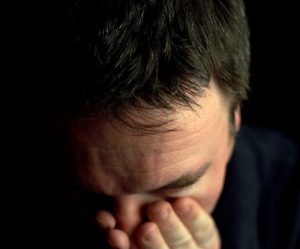The claims bill process for Florida personal injury and wrongful death lawsuits is once again coming under scrutiny for alleged lobbyist bias. This was after the Associated Press recently reported nearly half of the injury and wrongful death claims bills approved by state lawmakers in the last two years were awarded to victims represented by a lobbyist who is the brother of the state House speaker.
So why are personal injury and wrongful death cases handled in the legislature? Aren’t they handled in the courts? For those who aren’t familiar with the claims bill process, it deals specifically with claims against state and local governments that have already been through the court system. Florida allows exception to sovereign immunity (the idea that you can’t hold government accountable) so one can sue the government for negligence pretty much just like any other entity (with some exception). However, if you win, there is a damage cap of $200,000 for any individual person and $300,000 per incident. Those who have ever endured a serious injury know just how quickly one can burn through that amount – just in medical bills alone. So jurors at trial may award plaintiff damages far in excess of that amount, but that is all a plaintiff can collect – that is, unless they can find a state lawmaker to file a claims bill on their behalf requesting to be awarded more compensation to which they are rightly owed. That bill is then presented to the entire state legislature for approval. Each damage award is considered as a separate item by lawmakers. It is a tedious process that tends to require a lot of “cooks in the kitchen,” but it can be an invaluable means of compensation for those seriously injured.
Cases can range from those injured in a car accident with a negligent city worker to the medical malpractice of a nurse employed by a government-owned hospital.
Allegations of lobbying bias isn’t really anything brand new. In fact, back in 2013 and 2014, lawmakers didn’t approve a single claims bill, in part due to the firm opposition of the then-Senate president, who argued the bills were passing based on the effectiveness of their lobbyists, not the actual merits of the claim.
Then lawmakers announced a commitment to try to clear through the backlog of payments to victims and families who sustained harm as a result of government actions, offering up the explanation that they had a duty to those injured to abide by court rulings. However, what they did not say was that $17 million of the $37.5 million in claims bills approved over the last two years were awarded to plaintiffs who had the help of outgoing House speaker Richard Corcoran’s lobbyist brother, who submitted 19 of the 100 claims bills filed during those legislative sessions, according to the AP.
This raises the question about who is – and isn’t – getting paid through these claims bills and whether the process is indeed impartial and fair. There are some representatives, for example, who consistently vote no on claims bills – not because they think the families don’t deserve them but because they say the process is deeply flawed. Some lawmakers say every claims bill they have ever presented came to them in the form of a lobbyist.
Several lawmakers told the AP that if the state was going to waive its sovereign immunity damage caps, it needed a more structured, egalitarian process to make that happen – one that doesn’t rely on the power and connections of a lobbyist.
Contact the South Florida personal injury attorneys at Halberg & Fogg PLLC., Attorneys at Law, by calling toll-free at 1-877-425-2374. Serving West Palm Beach, Miami, Tampa, Orlando and Fort Myers/ Naples. There is no fee unless you win.
Additional Resources:
Lobbyist links to victim payments, June 5, 2018, By Gary Fineout, Associated Press
More Blog Entries:
Failure to Name All Defendants Can Put the Brakes on Your Crash Injury Lawsuit, May 21, 2018, South Florida Personal Injury Attorney Blog
 South Florida Injury Lawyer Blog
South Florida Injury Lawyer Blog

